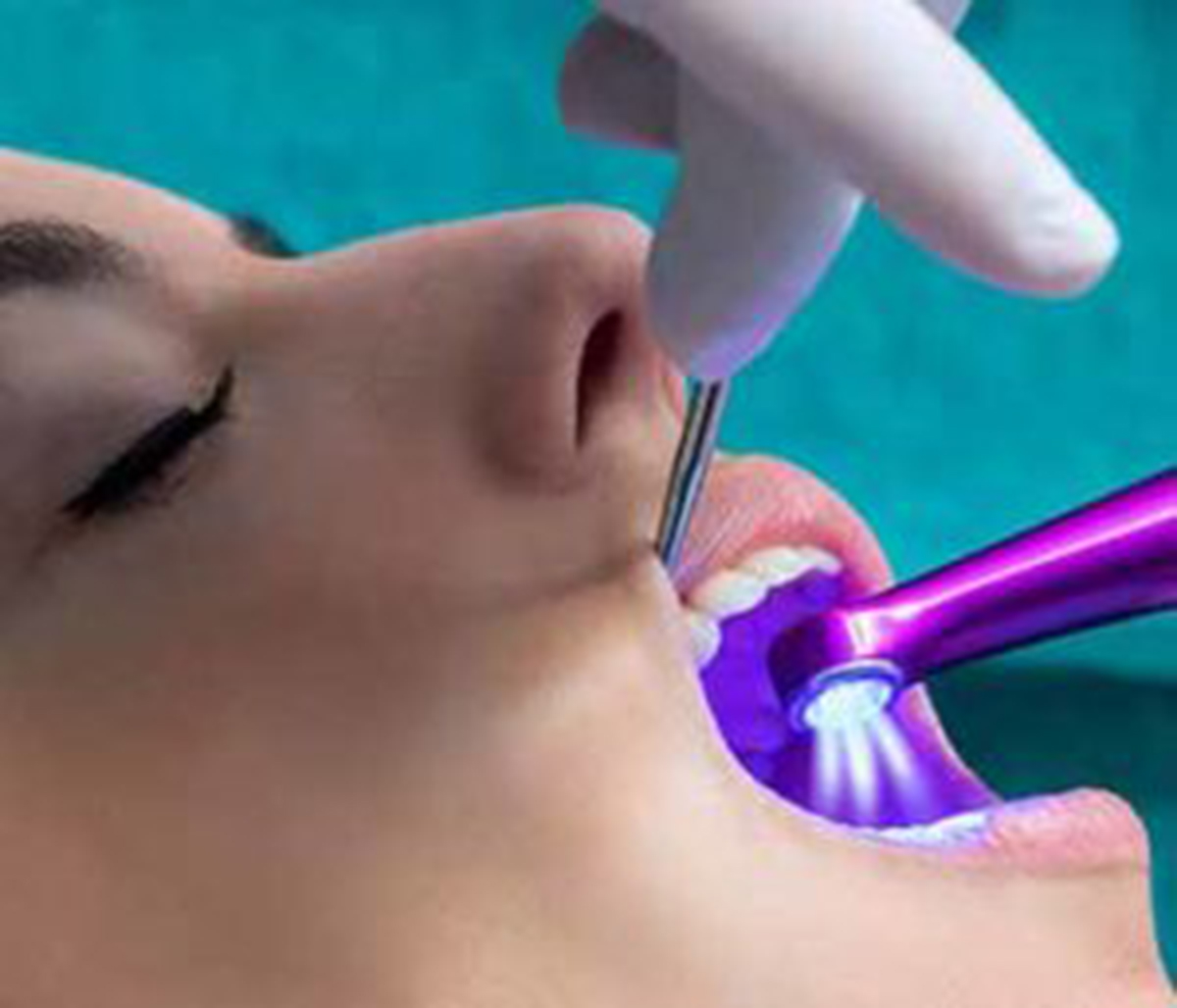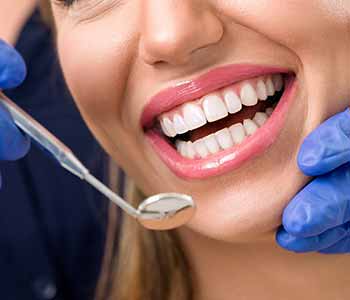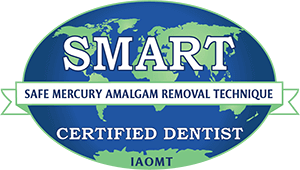
15
Jun
Maine dentist explains the applications of ozone therapy in dentistry

At the Maine Center for Dental Medicine, we’ve received many questions about ozone therapy in dentistry. Ozone has many applications in dentistry because it is a naturally occurring gas that has a microbial effect to kill bacteria, fungus, parasites, and viruses. We use ozone therapy in many different procedures from fillings to periodontal disease.
What is ozone?
Ozone (O3) is a type of molecule made of three oxygen atoms. You may be familiar with the term ozone as it relates to our atmosphere. Ozone in the atmosphere protects the living things on earth from harmful ultraviolet rays by cleansing the air of pollutants.
Medical grade ozone has been used for over a century to aid in the healing of many conditions such as heart disease, fibromyalgia, diabetes, autoimmune disorders, Lyme disease, and other disorders. Ozone therapy was first incorporated into dentistry in the 1930s and since then has become a vital component of many biological dental practices.
How dental ozone works
In simple terms, ozone attaches itself to the wall of a diseased cell or virus. Because damaged cells and pathogens do not have the antioxidant enzymes necessary to protect them from the ozone that has become attached, the cell dies. Healthy cells, on the other hand, do have the necessary antioxidant enzymes to convert the ozone back to oxygen. This mean ozone kills the bad cells, but is simultaneously beneficial to healthy cells.
When we are concerned about infection within a tooth, we will frequently consider ozone therapy. The use of ozone can help us treat the infection while preserving as much natural tooth structure as possible, making it ideal for biological, conservative dental care.
Applications of ozone in dentistry
Ozone has proven to be the only reliable method to disinfect teeth that have become deeply impacted by decay beneath the enamel without further weakening the tooth. It’s also very effective in the treatment of periodontal disease and healing following oral surgery.
Ozone therapy and cavities
In traditional dentistry when there is a cavity, the damaged tissue is removed, and the area is then cleaned and filled. When we incorporate ozone therapy we still remove the damaged tissue, but the ozone then reacts with any lingering bacteria or acid that is present to disinfect the tooth and the mouth. Bacteria thrive in acidity, so when ozone therapy neutralizes the mouth it makes it so the bacteria no longer have an environment where they can thrive. Ozone can also reduce sensitivity that often comes after decay removal and restoration.
Ozone therapy and periodontal disease
Periodontal disease (gum disease) is caused by bacteria in the mouth. Patients with periodontal disease often develop bleeding gums and deep pockets in the area where the gums have receded. These pockets become breeding grounds for bacteria and other pathogens.
For patients with periodontal disease, traditional treatment requires cleaning out the area, but there is still many nooks and crannies where bacteria and pathogens can hide. Ozone gas helps rid the area of all the bad bacteria, viruses, and fungus to thoroughly disinfect the area and prevent recurrence of disease.
Ozone therapy and root canals

Chances are you’ve heard of root canals and perhaps you’ve also heard of the controversy surrounding them. There is a lot of contention in the dental world about root canals and their ability to effectively treat deep infection within the tooth.
In a typical root canal, the infected tissue, nerve, and blood vessels are removed from the canal. It is then disinfected and sealed. The problem is that because the inside of the tooth structure is so complex, there is no way to ensure all the bacteria is eliminated.
The use of ozonated water and ozone gas to irrigate the tooth canals after removal of the infected tissue can improve the success of a root canal.
At the Maine Center for Dental Medicine, we are pleased with the way ozone therapy can help improve the outcome of dental procedures, ridding the oral cavity of harmful bacteria and restoring health by preserving as much natural tooth structure as possible. If you would like to learn more about the benefits of ozone therapy and its applications in dentistry, please call (207) 474-9503.
Share this Article
A graduate from New York University College of Dentistry, Dr. Mohammed Imam began his practice in Nigeria and moved to the United Kingdom to continue his training in Oral & Maxillofacial Residency.
With over 30 years of expertise Dr. Imam regularly updates himself on modern techniques and methods whilst continuing to invest and perform procedures using the best technology and equipment to ensure his patients receive the best and most bio-compatible oral care possible.
Dr. Imam’s areas of specialty include implant dentistry, TMD and Orofacial pain. He is also SMART certified and a member of the Academy of General Dentistry.
An alumnus of New York University, Dr. Shafiulla Khan brings with him a wealth of knowledge and expertise gained over his 35 plus years of practicing dentistry. He is well known for his passion to improve his patients’ lives with his service. While being a SMART certified professional, Dr. Khan’s areas of specialty includes Tempro-mandibular Disorders, TMJ therapy and smile make overs. He remains a prestigious member of the International Association of Oral Medicine and Toxicology (IAOMT) amongst many others.



 Linkedin
Linkedin